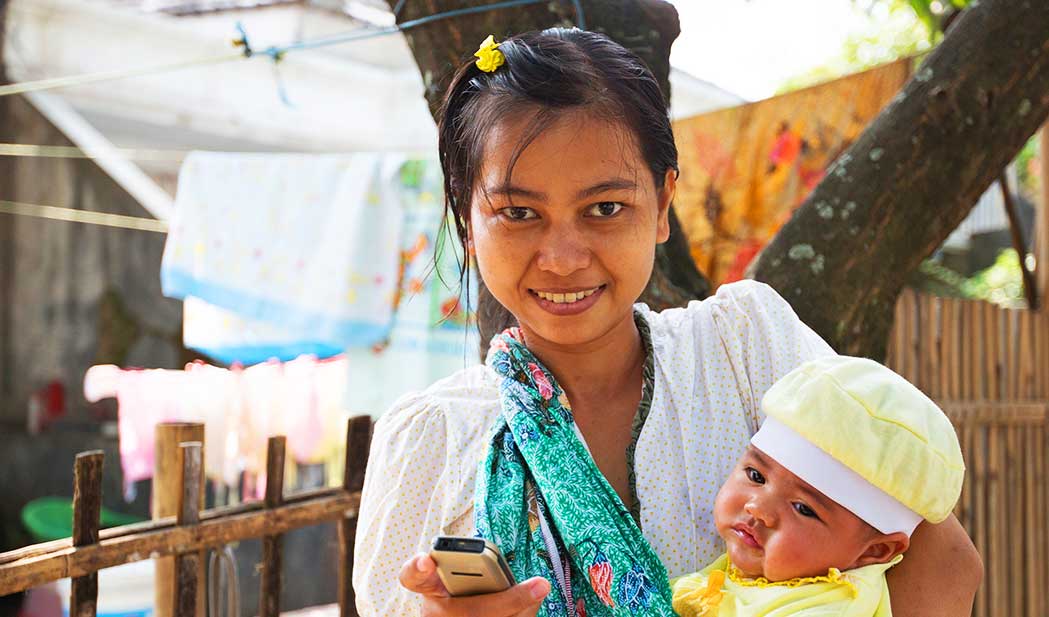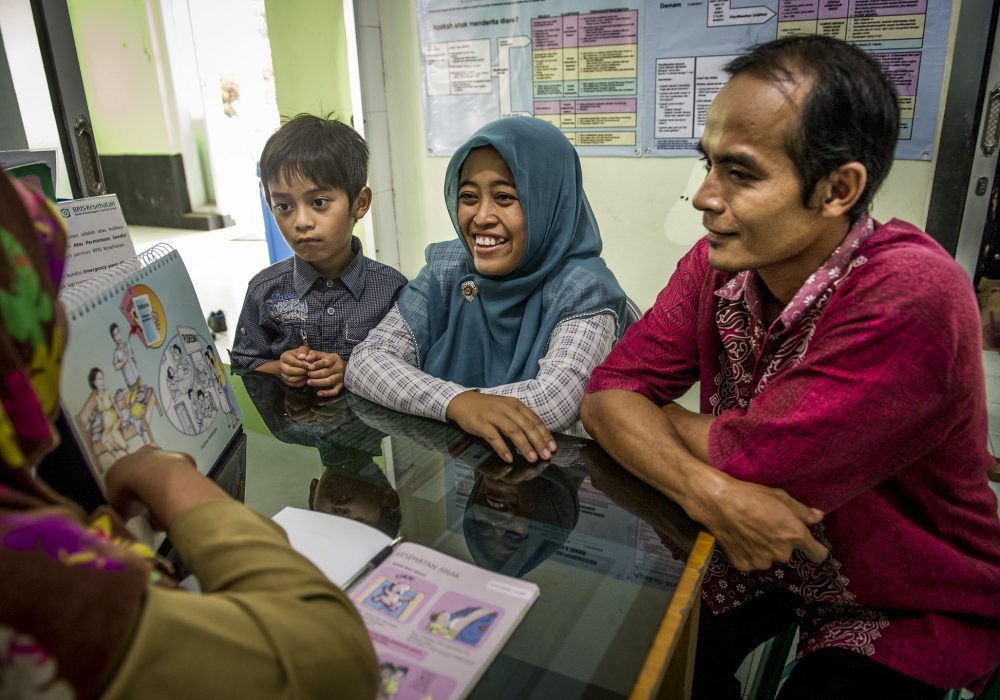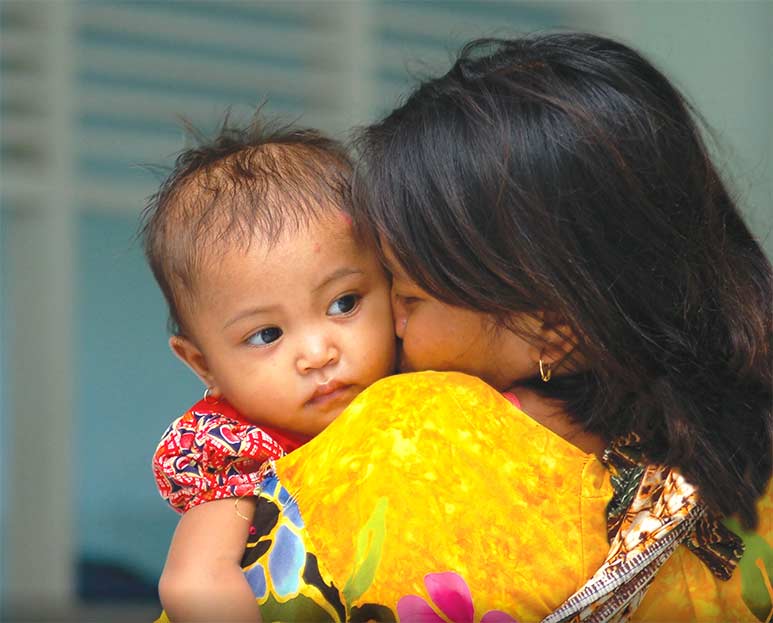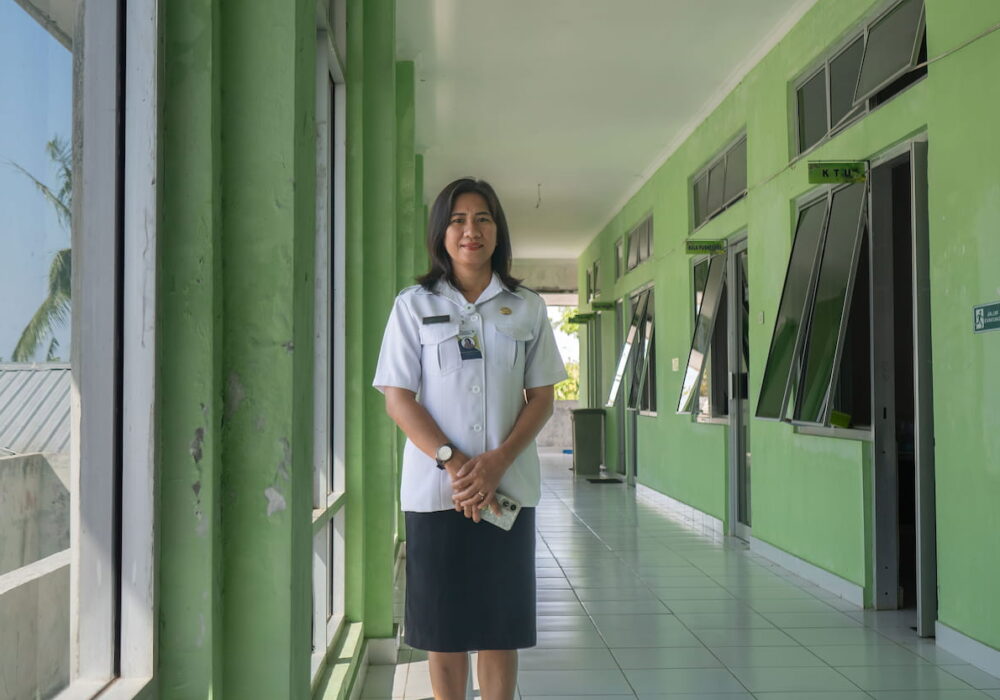Indonesia
Using evidence and technology since the 1980s to keep women and children healthy.
- During its first three years, the MOMENTUM Country and Global Leadership project contributed to a sustained decrease in institutional maternal mortality ratio in project-supported facilities, falling from 258 in its first year to 174.8 by the third year.
- Jhpiego launched an SMS (text message) service to provide pregnant women and new mothers with information on pregnancy, childbirth and care for newborns, infants and early toddlers, gaining more than 300,000 subscribers from 284 districts.
- Technical assistance provided by Jhpiego to maternal and newborn health (MNH) technical working groups under the MOMENTUM Private Healthcare Delivery project led to development of 24 policies (five provincial regulations and 19 district regulations) on MNH issues. These working groups have also successfully advocated for 60 billion Indonesian Rupiahs in local government budget commitments for MNH.

Our Work in Indonesia
MOMENTUM Country and Global Leadership
MOMENTUM is a suite of projects, funded by USAID, that aims to accelerate reductions in maternal, newborn and child mortality and morbidity in high-burden countries by increasing host country commitment and capacity to provide high-quality, integrated health care. Each of the projects has a specific focus area; together they provide a comprehensive, flexible package of support for countries as they overcome context-specific health challenges towards sustainable development. The six-year, Jhpiego-led project focuses on: 1) providing targeted technical and capacity development assistance to our missions, partner countries and local organizations; and 2) contributing to global technical leadership and policy dialogue for improved maternal, newborn and child health outcomes. Jhpiego’s sub-partners under this project are: Save the Children, Johns Hopkins University International Vaccine Access Center, Quicksand, Matchboxology, BAO Systems, Avenir Health, McKinsey and Company, PACT, Institute for Healthcare Improvement, Christian Connections for International Health and Ubora Quality Institute. In Indonesia, the project partners with the Ministry of Health to reduce preventable deaths among mothers and babies at public and private health care facilities by improving access and quality of health services across all districts in East Nusa Tenggara and select districts in the four provinces of North Sumatra, Banten, East Java and South Sulawesi.
MOMENTUM Private Healthcare Delivery
This global project, also under the MOMENTUM suite of awards (see above), supports countries—including Indonesia—to improve the quality of care provided by the private health care sector and increase opportunities for a total market approach to quality services, products and information in the areas of maternal, newborn and child health. The project is led by PSI and funded by the U.S. Agency for International Development. Under this award in Indonesia, Jhpiego is focusing on maternal and newborn health services in private health care settings to: 1) improve the quality of these services delivered by primary and referral private health care providers in targeted/select areas; 2) strengthen national policy and regulatory framework on quality of care and for engagement with the private sector; and 3) improve coordination between the public health system and private providers at the district level in targeted/select provinces.
The people we serve
Country Contact
Maryjane Lacoste, Country Director/Senior Technical Director
Tel. 62.021.2920.1500
Tempo Scan Tower, 21st Floor
Jl HR Rasuna Said Kav 3-4 Kuningan
Jakarta, Indonesia 12950
Current and Recent Donors
Gates Foundation
Boeing
LDS Charities
Margaret A. Cargill Philanthropies
Pfizer Foundation
United Nations Foundation
USAID










